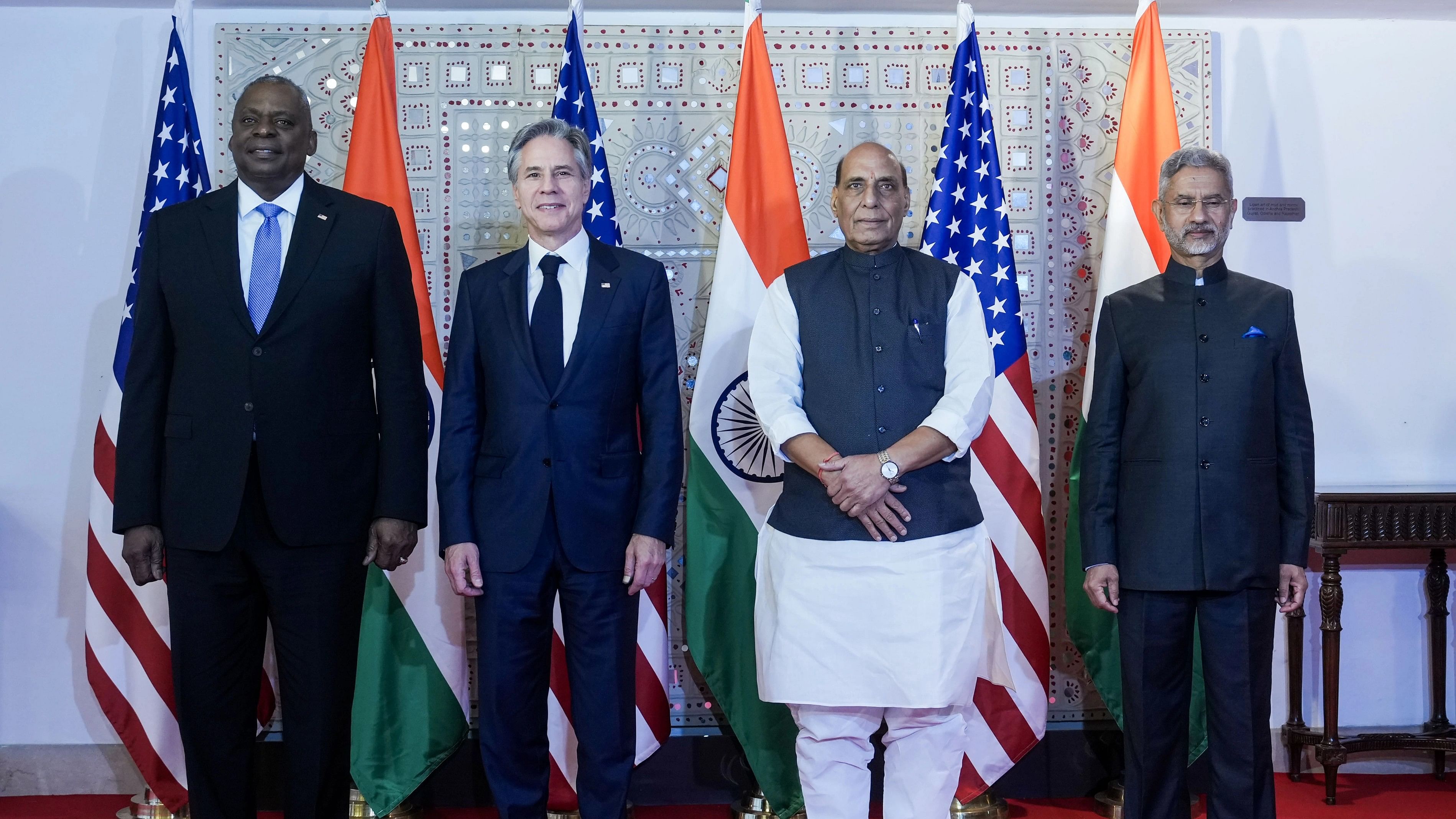
Defence Minister Rajnath Singh and External Affairs Minister S Jaishankar with US Secretary of State Antony Blinken and US Secretary of Defence Lloyd Austin.
Credit: PTI Photo
New Delhi: India and the United States on Friday discussed the growing security challenges from China, even as the two nations supported humanitarian pauses in Israel’s offensive in the Gaza Strip in retaliation to the terrorist attacks carried out by Hamas on October 7.
New Delhi joined Washington DC to pledge to continue humanitarian assistance to the people of Ukraine, albeit avoiding condemning Russia’s military aggression against the East European nation. India and the US also concurred on the need for post-conflict reconstruction in Ukraine.
External Affairs Minister S Jaishankar and Defence Minister Rajnath Singh hosted their US counterparts – Secretary of State Antony Blinken and Secretary of Defence Lloyd Austin – for the fifth bilateral 2+2 dialogue in New Delhi. They reviewed the progress in advancing bilateral cooperation in diverse sectors, including in the areas of high technology as well as defence and security, as agreed upon during Prime Minister Narendra Modi’s landmark state visit to Washington DC in June and the US President Joe Biden’s visit to New Delhi in September.
The 2+2 dialogue apparently set the stage for Biden’s proposed second visit to New Delhi on an invitation from Modi to be the chief guest for the Republic Day ceremony on January 26 next year. The two sides however refrained from formally announcing the visit.
Singh, Jaishankar, Austin and Blinken noted the October 7 “horrific terrorist attacks” against Israel. They reiterated that India and the US stood with Israel against terrorism. They, however, also called for adherence to international humanitarian law, including with regard to the protection of civilians. They called for the immediate release of all remaining hostages held by Hamas. They committed to continue coordinating with partners in the region on humanitarian assistance to meet the urgent needs of Palestinian civilians in Gaza. They expressed “support for humanitarian pauses and committed to continue close diplomatic coordination, including with key partners in the region, to prevent the conflict from spreading, preserve stability in the Middle East, and work toward a political solution and durable peace”, according to a joint statement issued after the 2+2 dialogue.
Jaishankar said that India had always advocated the resumption of direct negotiations between Israel and the Palestinian Authority towards establishing a sovereign, independent and viable State of Palestine living within secure and recognised borders, side-by-side at peace with Israel.
The two sides underlined their strong commitment to safeguarding a free, open, and inclusive Indo-Pacific through mechanisms like the Quad – a coalition forged by India, the US, Australia and Japan to counter China’s expansionist moves in the region. Modi is expected to host a summit of the Quad during Biden’s proposed visit to New Delhi early next year.
“As natural and trusted partners with a shared commitment to advance democracy, human rights, and pluralism, and growing convergence of strategic interests, India and the US reaffirmed their resolve to promote a resilient, rules-based international order with respect for international law, including the UN Charter, sovereignty and territorial integrity, and to ensure peace and prosperity for all,” according to the joint statement.
Austin later told journalists that the two sides also discussed rising security challenges posed by China. He, however, added that the US-India relationship was not just based on China, or the challenge presented by China. “It's based upon, again, shared values.”
